Who Are Advocates? A Deep Dive into our RAW Survey Data Short Reports
Mariam Hashimi, June 27, 2025
Learning about Advocates and their experiences...
Over the course of 2024, RAFT’s Outreach and Engagement Manager, Mariam Hashimi, compiled and analyzed 482 responses to our Roadmap to Advocate Wellness survey. From this analysis we created and shared 6 short reports. In case you haven't read through them, here is an overview of the information you can find there!
A Few Overarching Themes and Findings
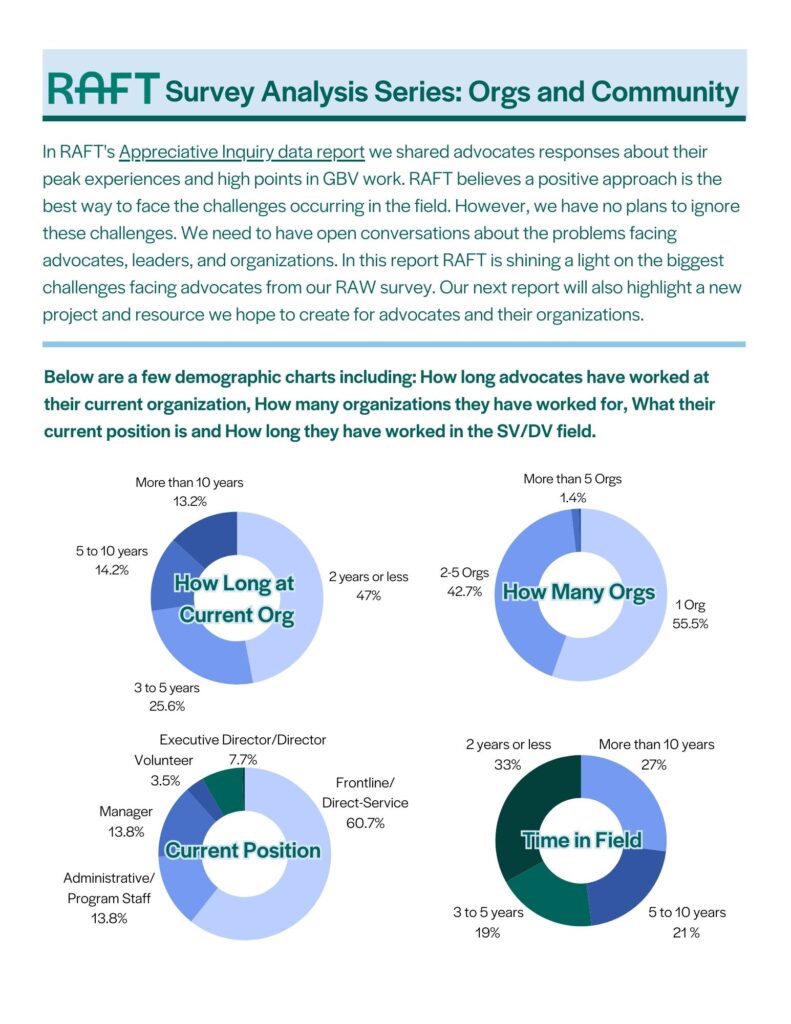
Advocates are passionate about their organizations' mission. When asked what advocates value most about their organization and its larger contribution to society and the world, 44 survey participants mentioned their mission statement.
"The thing I value the most regarding our organization is that we stay true to the mission of empowering survivors of domestic violence as well as educating the community which in turns assists in the larger contribution to society by shining light on the darkness of domestic violence."
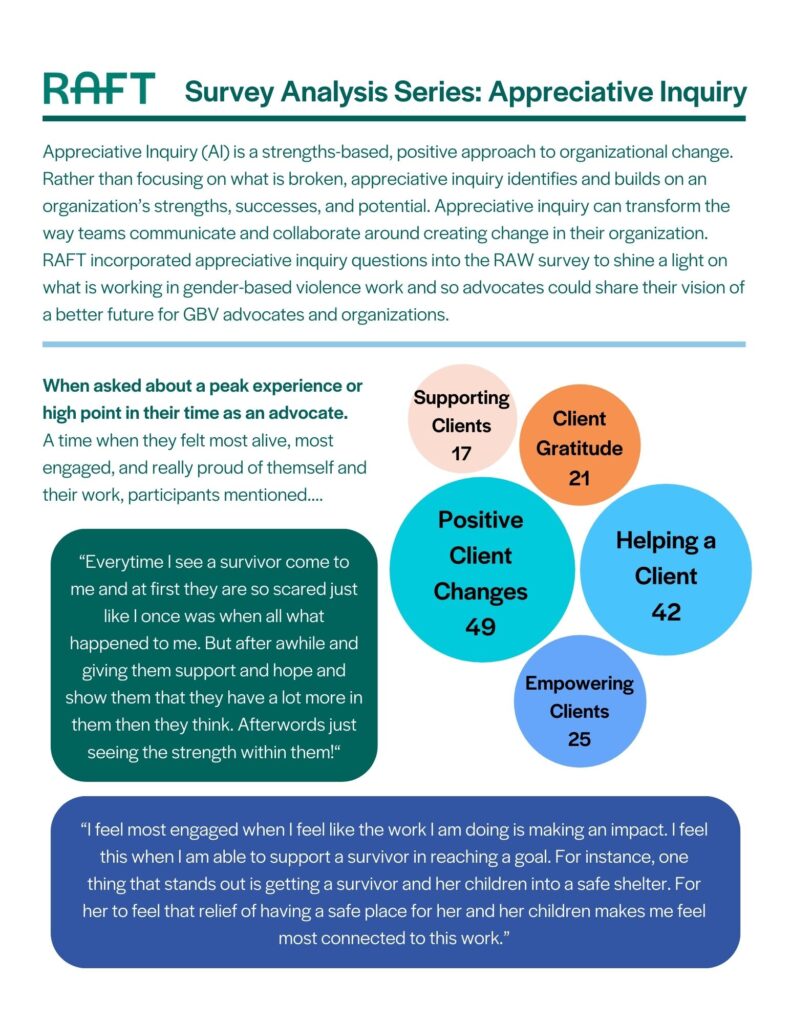
Advocates value their ability to create safe, compassionate spaces for clients. "I love that we serve as a light in the dark for our survivors. I love that we offer them a little bit of peace during such challenging moments in their lives." Throughout the survey questions, 68 participants mentioned either having compassion for others, their coworkers, or clients. 46 responses mentioned supporting clients; they value their capacity to support them through their healing journey and are happy to see them learn and heal.
"I value my ability to empathize and create a safe space for people. I think I do that well because I am able to sit with people in their darkest times without judgment and without pressuring them to make a decision, they're not ready to make."
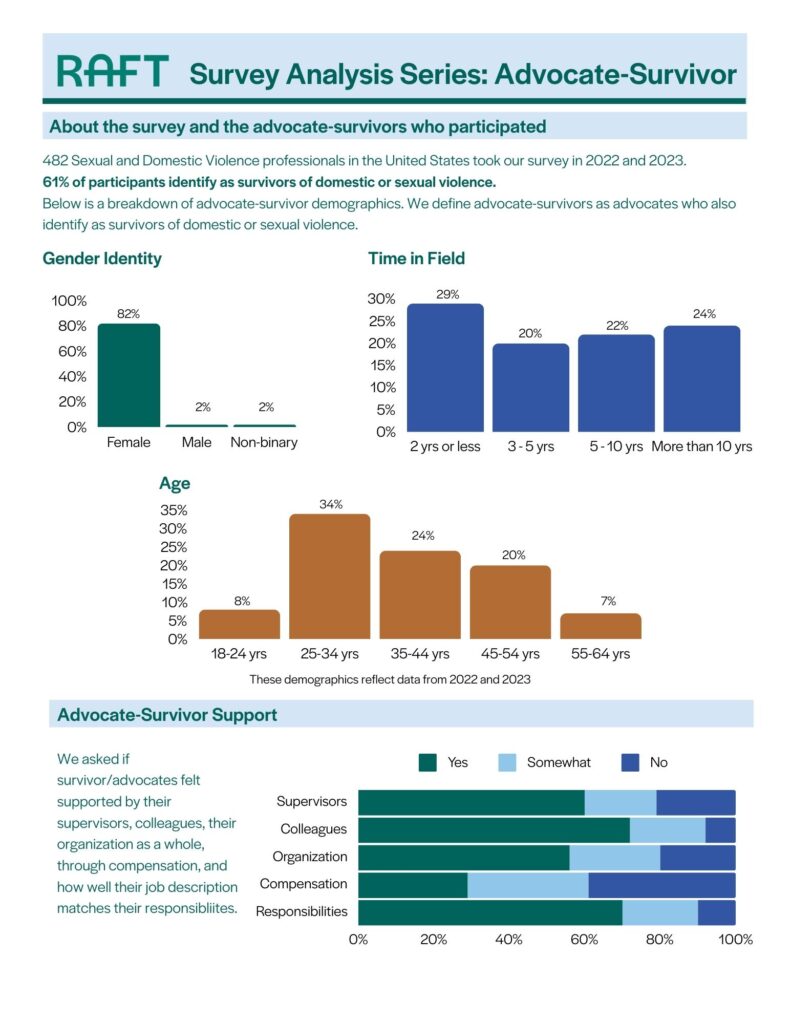
Lack of adequate funding and compensation for advocates' work is a detrimental issue within this field. 184 responses to various survey questions mentioned issues with funding. We know that 2025 has been especially rough in this area with the current political climate and funding cuts for federal grants. Yet this has always been an issue within the anti-violence field. Unfortunately, lack of funding for organizations leads to inadequate compensation for advocates' time and work.
When asked if they could be granted 3 wishes to heighten the health and vitality of their organization, one participant responded:
"1. Unlimited funding for direct client services and living wages for advocates. 2. A shelter large enough so that we do not have to turn anyone away because we are 'at capacity'. 3. The ability to hire enough staff so that we are never 'at capacity' so we are able to help everyone at the level of support they need."
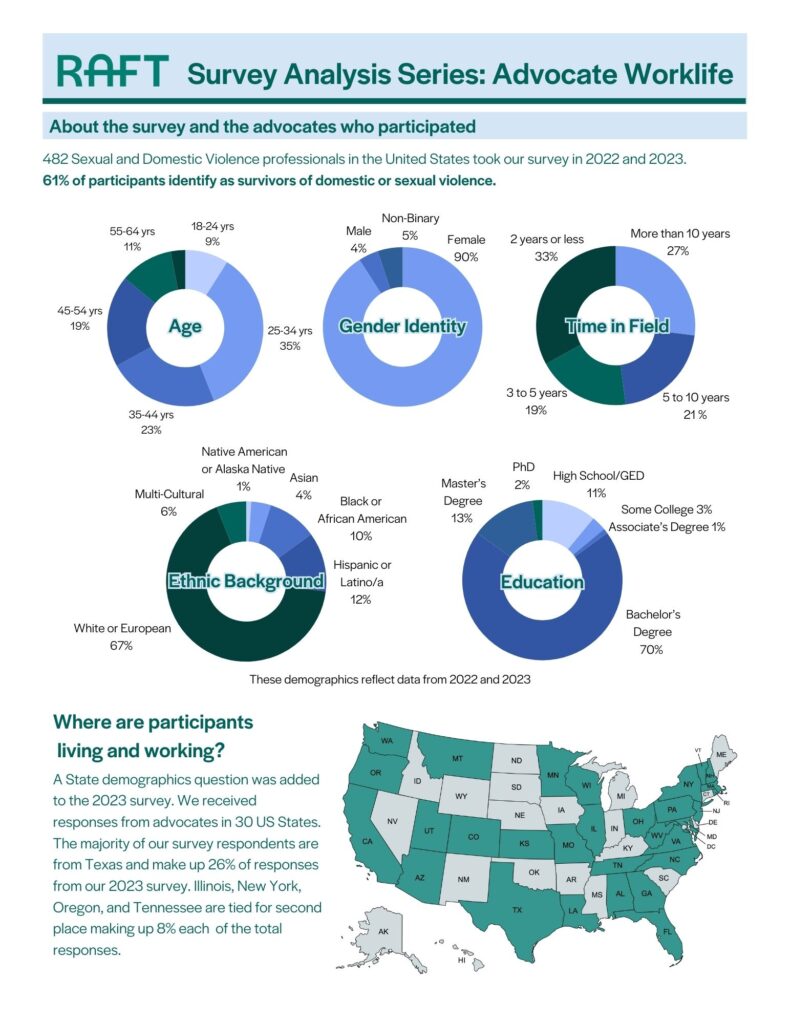
High turnover rates put strains on advocates who are already working hard. Lack of adequate compensation means that advocates can't afford to pay their bills without a second job, or they might need to leave their position for another higher paying job. Add stress, long hours, and toxic leadership and you have a recipe for burnout - leading to high turnover rates.
"I would do this work forever if it was not for the uncertainty, poor pay and toxicity in the work environment. If/when I leave it will not be because my passion has died, but because I have had to make a loving decision for myself about what's healthy and sustainable for me."
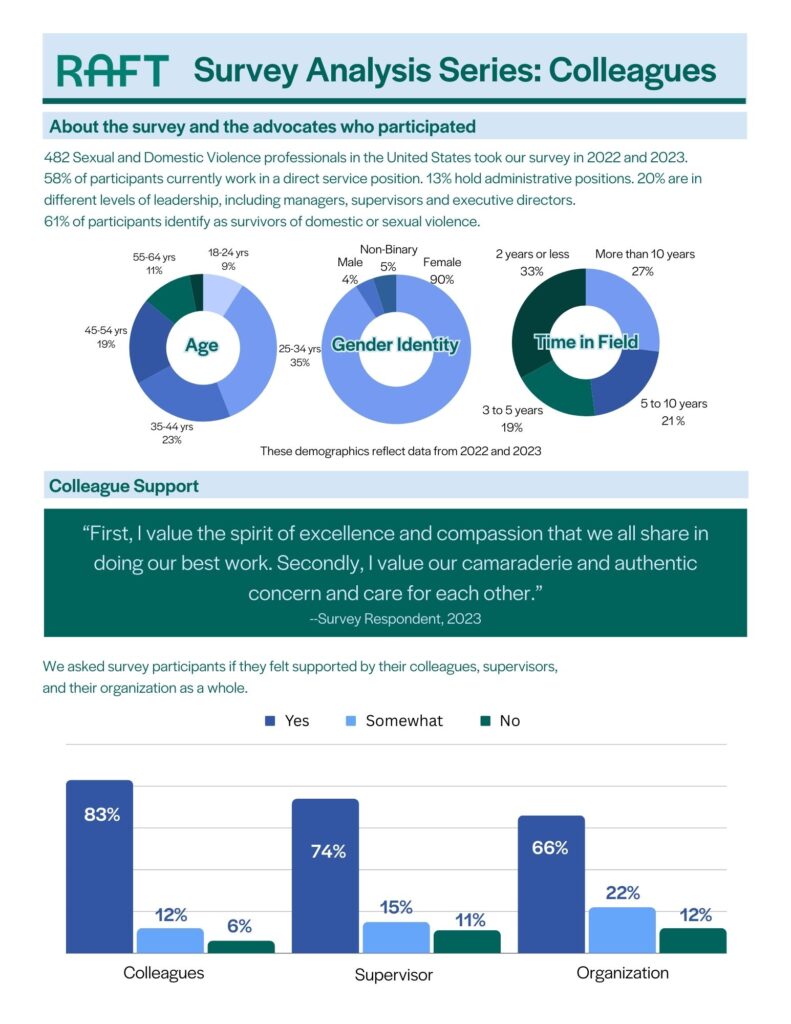
Advocates feel supported by coworkers and are generally comfortable asking for what they need at work. Despite all of the difficult situations advocates face at work, generally most can rely on each other for support. 83 responses mentioned helpful and supportive coworkers.
"I love all my co-workers, and they are super supportive, and it makes coming to work easier knowing everyone has your back."
"We all support one another. I've never worked with such a unique, strong, supportive team. We understand frustration at every level and position here, and we hold one another up through the stress and celebrate the high points."
What Does This All Mean?
Advocates are anti-violence superheroes. They support survivors; they support each other and are deeply passionate about the anti-violence movement. However, lack of funding, which leads to low pay rates and high turnover rates, is contributing to advocate burnout. When there aren’t enough people on staff, advocates take on longer hours at work, are under more stress and strain, and are less likely to have adequate time to rest and recover. Systems level change is needed within the field if we want advocates to be able to continue supporting survivors.
Our Next Steps Toward Thriving Advocacy Organizations
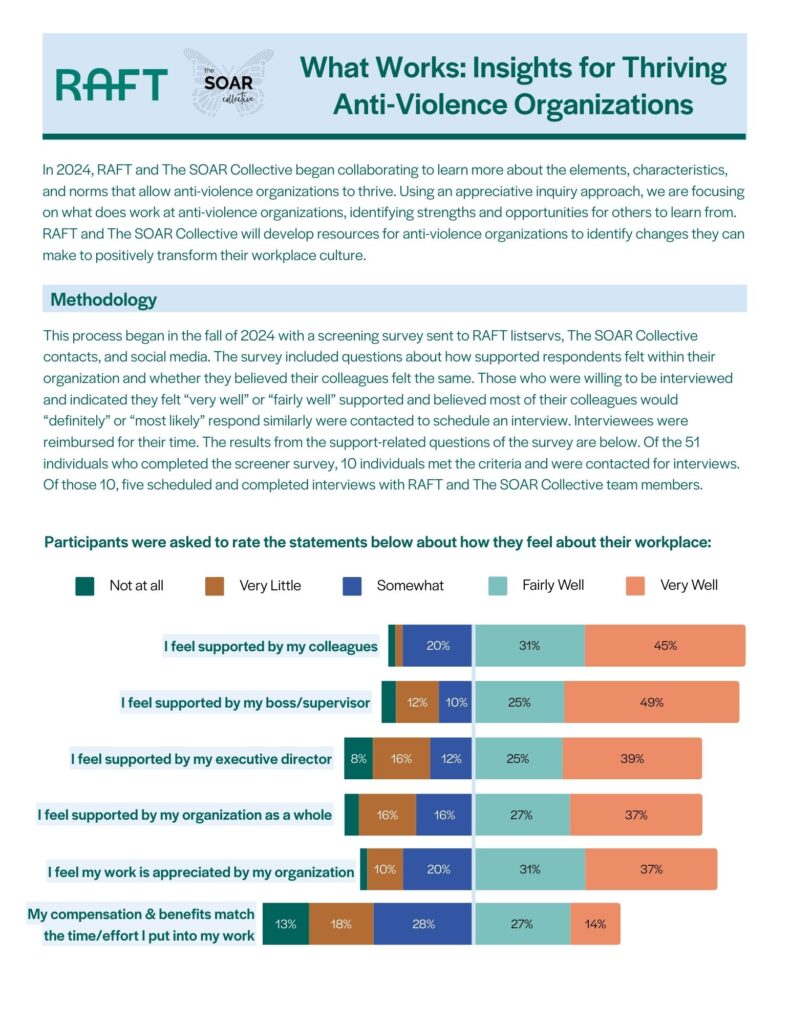
Most of 2023 and 2024 were spent learning more about the issues and challenges faced by anti-violence organizations. In Fall of 2024, RAFT, implementing appreciative inquiry practices, chose to start focusing on the positives happening in organizations. We know there are advocacy organizations whose staff and culture are thriving and are doing their best to support their staff despite various challenges. RAFT partnered with The SOAR Collective are interested in learning more about the elements, characteristics, and norms that allow anti-violence organizations to thrive. Interviews and data collection is currently ongoing for this project.
By focusing our attention on what works well, we hope to build a resource that anti-violence organizations can use on their own to assess their organizations and make small changes to slowly transform the organization into a workplace anyone would want to keep working at!
Continue to follow our work on increasing the data and information around advocates. Find more of our reports and resources here. We will continue to have more opportunities to participate!






